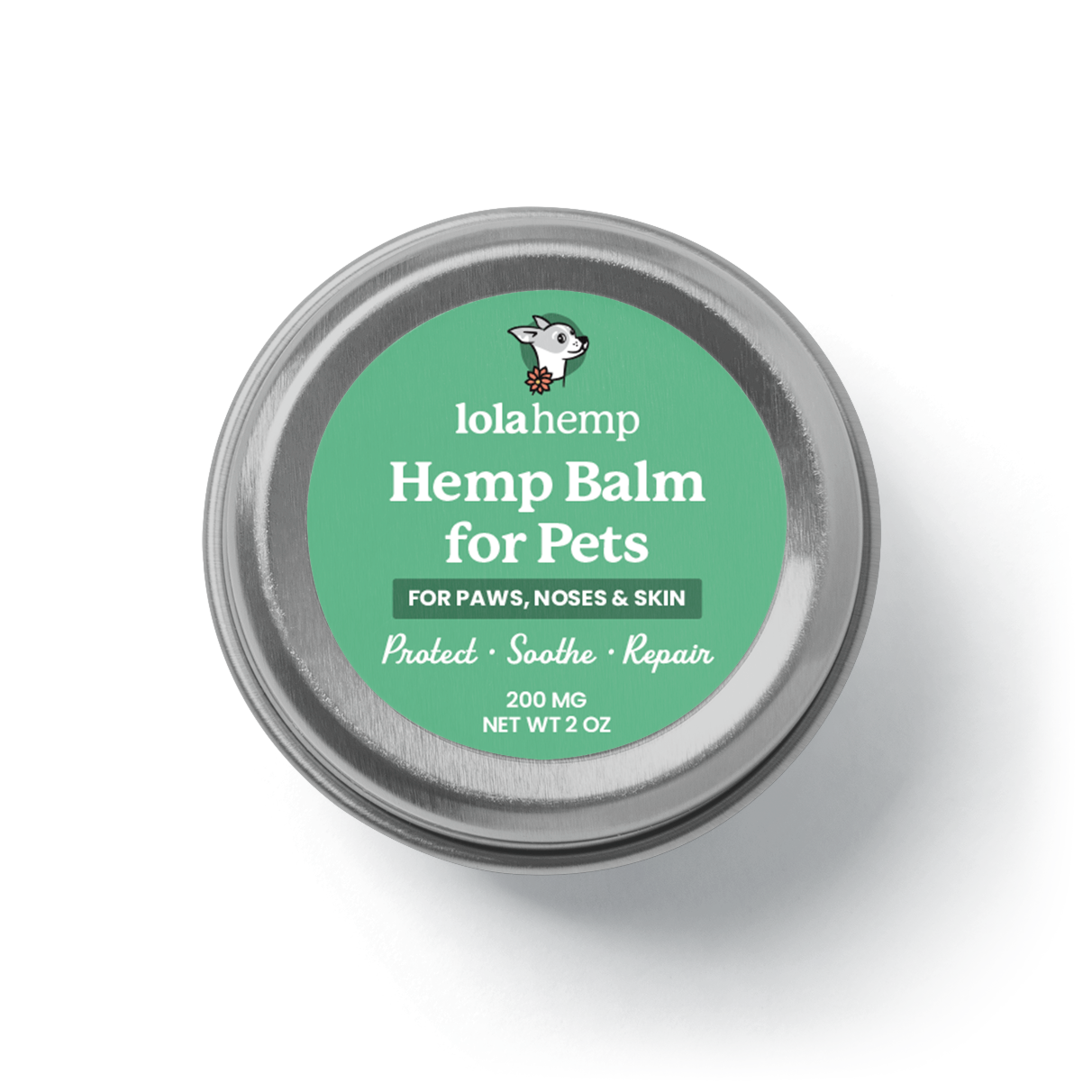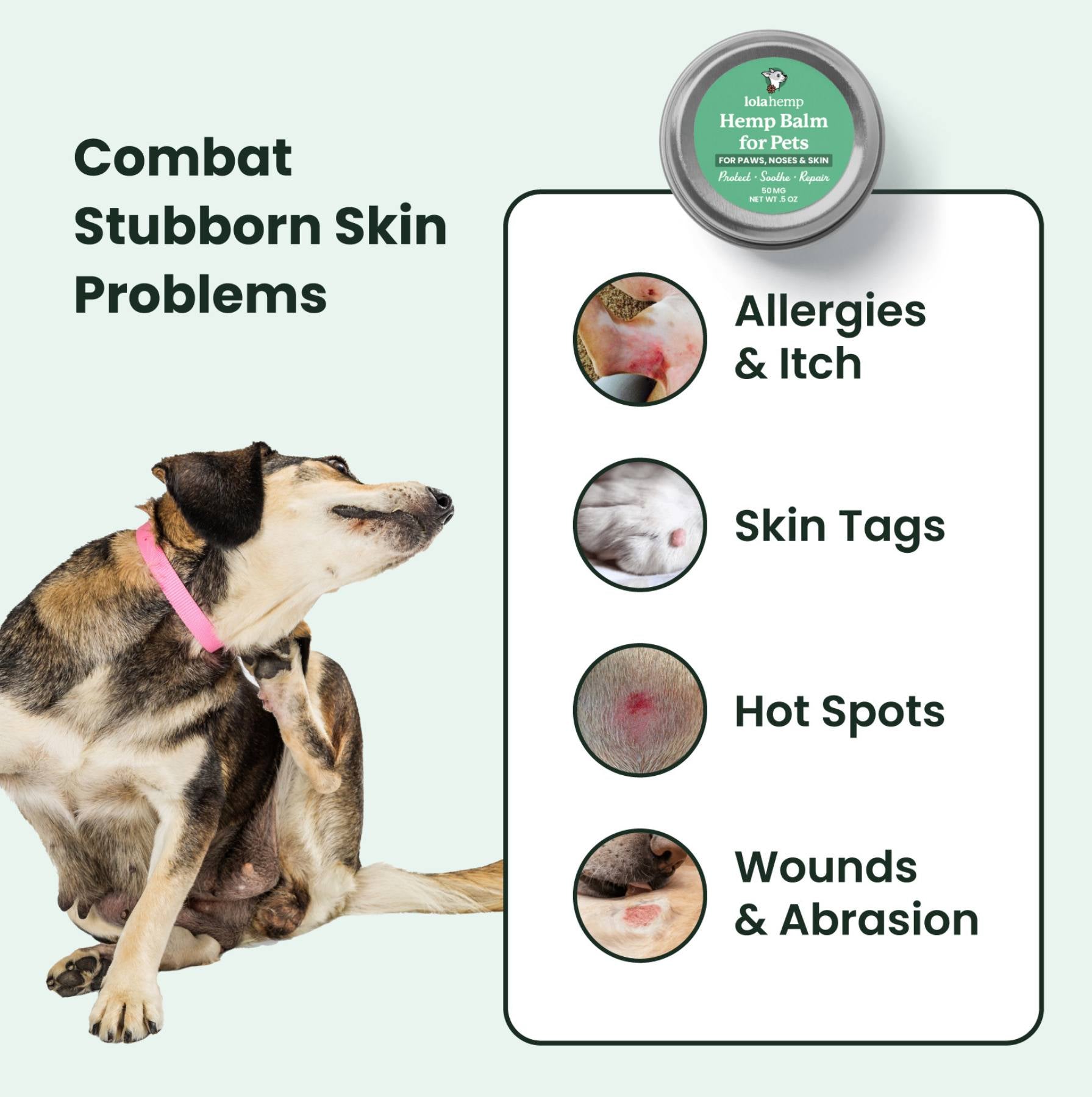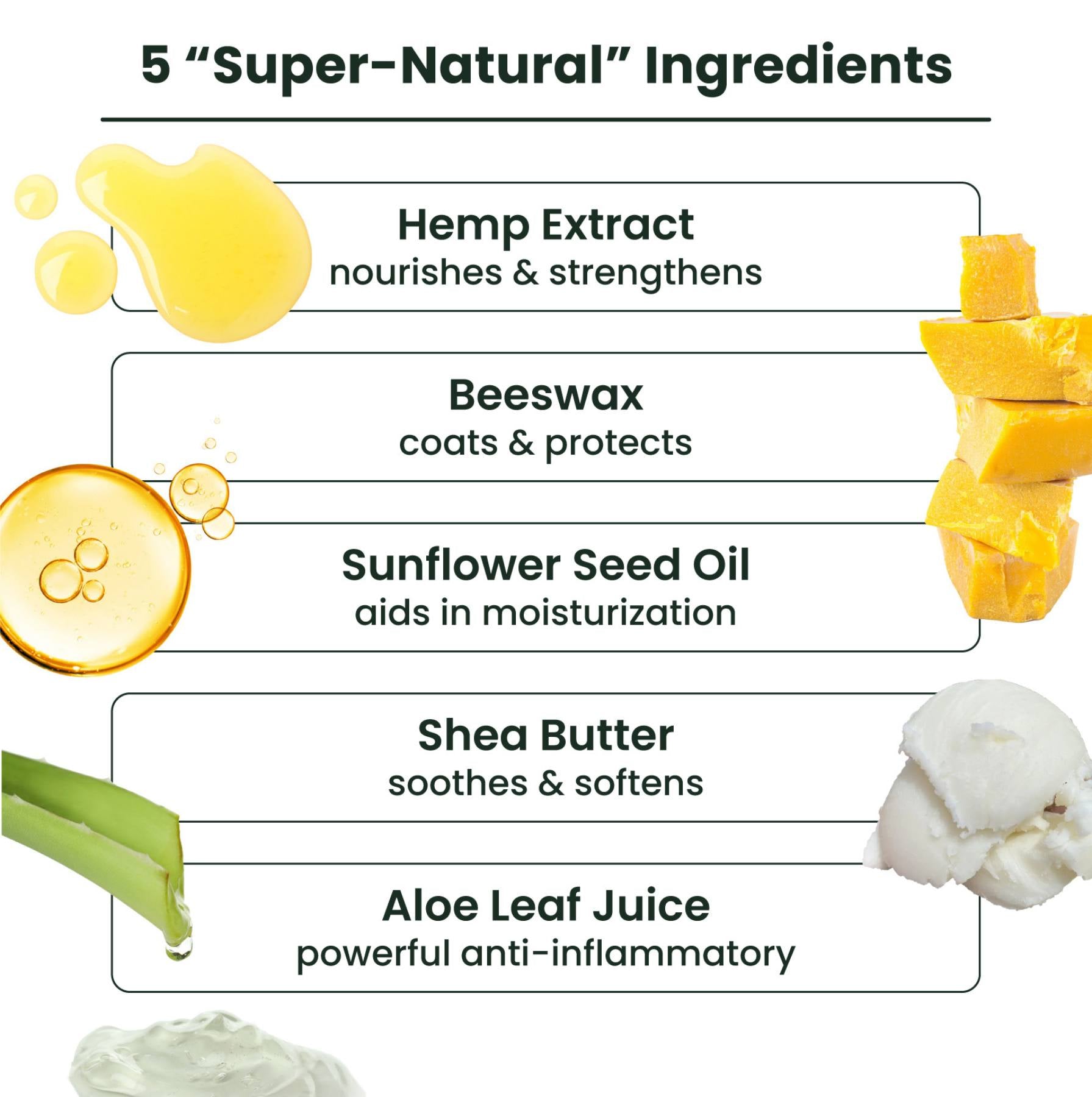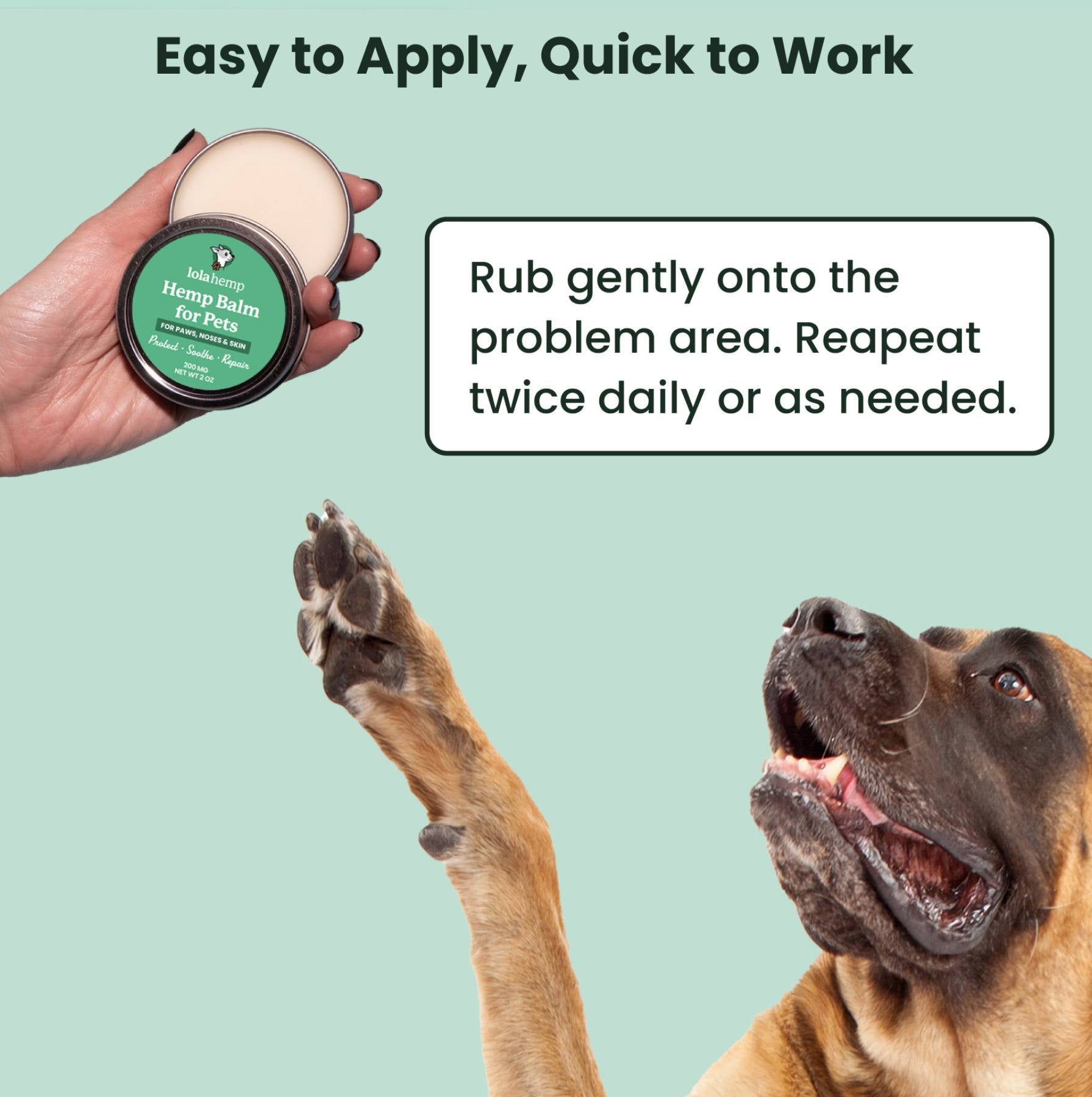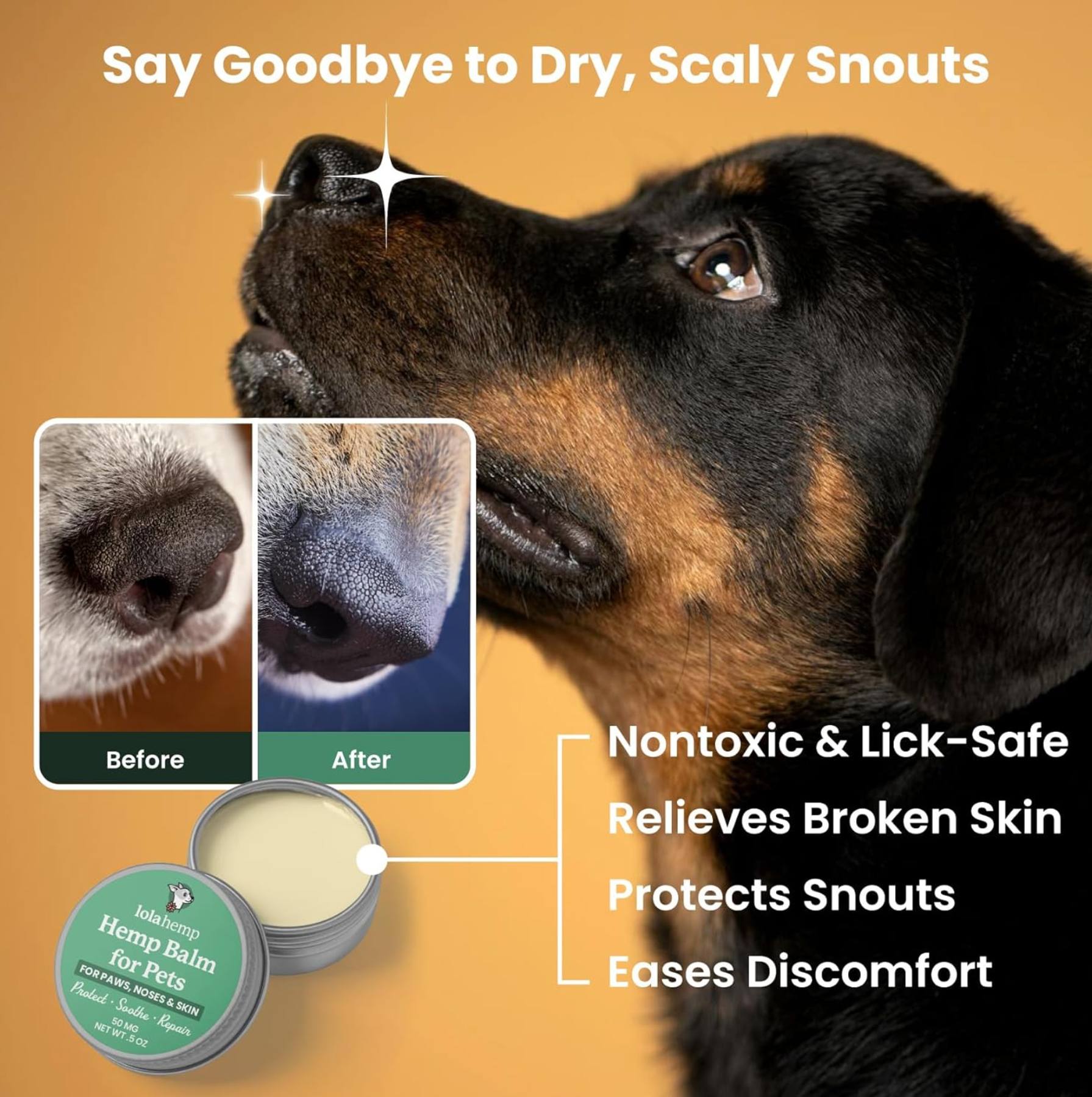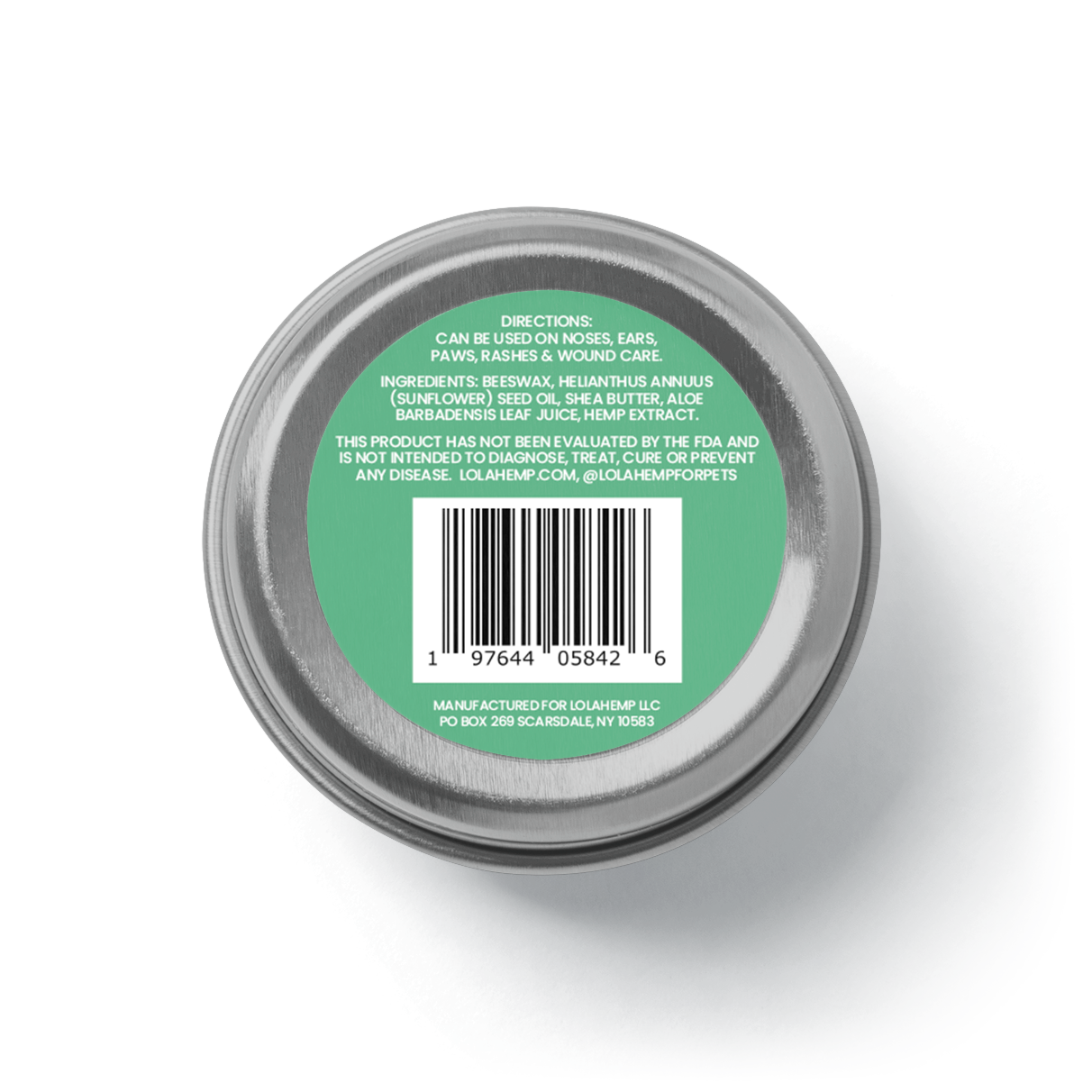There are plenty of myths surrounding dog noses, and what it means if they're dry or cracked. While a dry or cracked dog nose isn't automatically a cause for concern, it's something to keep an eye on.
Dogs' noses dry out periodically according to their environment, hydration level at a given time, and exposure to heat. Dogs often have dry noses after sleeping, because they're not able to lick their noses to keep them moist during sleep. Allergies are also a common cause of nose dryness in dogs.
At the same time, your dog may have a persistently dry nose, and this may be concerning to you. Let's quickly look at why your dog's nose is dry, followed by three steps you can take to moisten your dog's nose once and for all.
What Causes Persistent Dryness in Dog Noses?
The key reason to solve your dog's nose dryness is the fact that a moist nose is better able to smell, and a cracked or flaky nose is uncomfortable to your dog's highly sensitive nose.
Key Reasons Your Dog's Nose is Consistently Dry:
- Dry air, particularly in the winter
- Sunburn, or exposure to heat from home heaters
- Allergies to something in your home
- Time spent sleeping (especially near heaters)
- Brachycephalic breeds struggle to lick their noses
Allergies cause the nasal passage and tissues to swell and potentially reduce mucus production. If your dog's allergies are causing the issues, they might paw and scratch at the nose, further irritating it and causing cracks and stripping moisture.
3 Step Dry Nose Home Remedy for Dogs
No matter what's causing your dog's dry nose issues, there is a general method to keeping their nose moist and healthy in the face of the common causes of dryness.
If you follow this method, you can be sure any persistent dryness is something to consult your vet about because it's an unknown cause. The three steps below should be able to keep most dogs healthy and happy with consistently moist noses.
1. Keep Your Dog Hydrated & Sun-Protected
First things first, preventative care is key and non-negotiable. Dogs' noses dry out when they're dehydrated, and you'll be able to spot that dehydration filtering into their nose after about an hour or two.
When it's hot, and your dog is panting, it requires more licking to keep the nose dry, and their dehydration causes a dry mouth. It's a vicious cycle, and it's very important to always have fresh water on-hand for your dog at all times.
When it comes to sun-protection, you can easily find a dog-safe sunscreen that's made specifically for dog noses. These are lick-safe and designed to protect your dog's nose from burning.
2. Moisturize & Soothe Your Dog's Nose with a Balm
If your dog is prone to allergies or they're a brachycephalic breed, a vet-formulated nose & paw balm can ward off most, if not all of the unnecessary dryness your dog will experience.
Balms contain moisturizing, protective, and healing ingredients that are particularly effective for dog noses. Balms with CBD extract can also relieve some of the swelling and discomfort that causes dogs to itch and scratch.

Dog Balm Ingredients to Look for:
- Beeswax (moisturizes, softens)
- Sunflower Oil (rich in vitamins, promotes healing)
- Aloe (soothing relief, cooling)
- Shea Butter (relief, protective_
- CBD Extract (relief, anti-itch, soothing)
- Coconut Oil (promotes skin health, protective)
Products formulated for dogs with great reviews are safe to lick from the nose, and even after they're licked, the protective layer remains and keeps working on your dog's nose.
A good balm will produce noticeably improved moisture and skin health within a few days or weeks. Applying balm consistently provides your dog with a strong defense against the most common causes of nose dryness in dogs, including allergies.
3. Adjust Your Home to Risk Factors for Nose Dryness
Key contributors to nose dryness in dogs include: space heaters, fireplaces, allergens places your dog frequents, beds near heating vents, ceiling fans, cleaning products, and pollen from open windows.
We get it, that's a lot. You might not be able to prevent all of the risk factors, but you can mitigate some of the key ones.
Here's an at-home list to help you prevent dog nose dryness risk factors:
- Keep your dog's bed away from heating sources (e.g. vents, space heaters, radiators, fireplaces)
- Reduce use of constant fans and AC units (if you can't reduce fan or AC use, invest in a home humidifier to keep moisture in the air)
- Use an air filter in the home during spring to reduce the concentration of pollen.
- Keep your dog's water bowl at all times.
These preventatives will help your dog's nose stay moist indoors, at least as much as you can.
If your dog's nose refuses to moisten, however, when is it a sign that you have a deeper issue at play?
When to See a Vet about Your Dog's Dry Nose
In the majority of cases, dogs' noses will alternate between periods of moist and dry relatively commonly. Any time your dog takes a nap, it's likely that their nose will dry out a little bit due to lack of licking on your dog's part.
Even if you don't realize it, your dog tends to lick their nose every 15-20 minutes or more to keep their snout moist so they're able to smell effectively.
1. When Dryness Lasts for More Than 2-3 Days
Things become an issue when the dryness persists for more than a day or two. Extended dryness can signal dehydration, so think about whether your dog has been over-exercising.
If dehydration isn't the cause of lasting dryness, it could be a sign of an underlying illness that's affecting your dog's nose such as immune issues, skin disorders, fever, infection, or something else.
When dryness persists, it's always important to discuss this with your veterinarian, especially if it's accompanied by any other symptoms, which we'll discuss next.
2. When Dryness is Accompanied by Other Symptoms
When your dog's nose dryness is accompanied by loss of appetite, lethargy (drowsiness), vomiting, loose stool, coughing, sneezing, or other changes in personality, this could mean that your dog is sick.
Be sure to keep an eye out for any of these symptoms when you spot persistent dryness, and always visit the vet right away when you spot dryness accompanied by other symptoms.
Dog Dry Nose and Home Remedies: FAQs
What causes a dog’s nose to become dry?
Dry noses in dogs are commonly caused by dry air, allergies, sleeping near heaters, or dehydration. Some breeds, especially brachycephalic ones, are more prone due to limited ability to lick their noses.
Can allergies make my dog’s nose dry?
Yes, allergies are a major cause of dog nose dryness. They can cause nasal inflammation, reduced mucus production, and scratching or pawing that worsens dryness and irritation.
How can I moisturize my dog’s dry nose at home?
Use a dog-safe balm containing ingredients like shea butter, beeswax, and CBD extract. These soothe, protect, and rehydrate the skin without harming your dog if licked.
When should I take my dog to the vet for a dry nose?
If dryness lasts more than 2–3 days or is accompanied by symptoms like lethargy, vomiting, loss of appetite, or sneezing, see your veterinarian to rule out illness or infection.
Can diet or hydration affect my dog’s nose moisture?
Yes. Dogs that don’t drink enough water or are fed low-quality diets may show dryness. Keeping fresh water available and offering a nutrient-rich diet supports skin and nose health.

